308 | Breaking Analysis | Satya’s sacrifice: Why agents threaten Office & how Microsoft responds
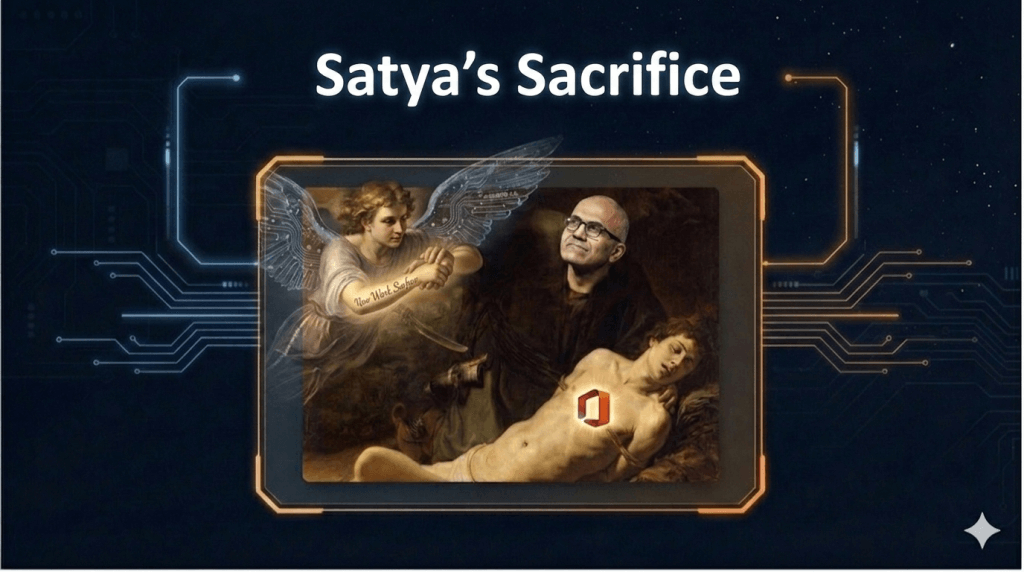
Last year, Satya Nadella made the claim that “SaaS will dissolve into a bunch of agents” sitting on top of CRUD databases. He was actually trolling Marc Benioff of Salesforce who had called Copilot the next “Clippy.” Ironically, it increasingly looks like Nadella was partially right, but only for single user apps, like Office. And that is creating a threat to the company that clearly he did not anticipate. The collapse of SaaS valuations as the threat of Anthropic agents looms over traditional enterprise software vendors is actually a different issue. We see the stock market reaction as mostly a threat to the SaaS pricing model. But it’s missing the larger picture, which is the potential for massive TAM expansion for those whose applications can be part of a platform that supports armies of agents and humans collaborating on end-to-end business processes.
The real issue is that Nadella’s prediction exposes a vulnerability to Microsoft’s single-user productivity franchise. Specifically, we see agents and a new work surface as the primary interface for knowledge work. Office risks being partially disintermediated – reduced from the place where humans and agents collaborate to a set of file formats that agents can create, edit, and orchestrate using open source engines while users live inside a new work surface – some container that’s more editable than Claude Cowork, and where Word, Excel, and PowerPoint are plug-ins. In other words, imagine a world where agents can create Office documents without the need for Microsoft apps, by reading and writing the underlying file formats. And when knowledge workers collaborate with agents, Office is moved from the center of their world to a bunch of plug-ins. .
This sets up Nadella’s hard choice – i.e. protect the Office annuity, or sacrifice parts of its app-centric model to ensure Microsoft owns the governed agent platform. Microsoft’s current model largely assumes that Copilot 365 drives Office apps via APIs, with Microsoft aiming for an army of agents licensed to use Office. In our view the market will flatly reject this approach. In this Breaking Analysis George Gilbert and I lay out what we see as a likely path for Microsoft; and how Microsoft will change its productivity software architecture to shift from app-centric to a more platform-centric approach where the value proposition forms around a new work surface, identity, security, information management and governance, and enterprise control; and more work is orchestrated by agents.
Special Breaking Analysis | Renen Hallak’s VAST Forward Keynote: A Vision of the AI Operating System

Renen Hallak opened VAST Forward – the company’s first global customer event – with a simple Hebrew phrase: “Know where you came from and where you are going.” While nostalgic, it was a deliberate attempt by Renen to communicate VAST’s next act – its “AI Operating System” ambition – in a decade-long sequence of architectural […]
Deterministic Modernization Becomes the Missing Layer in the AI Coding Era
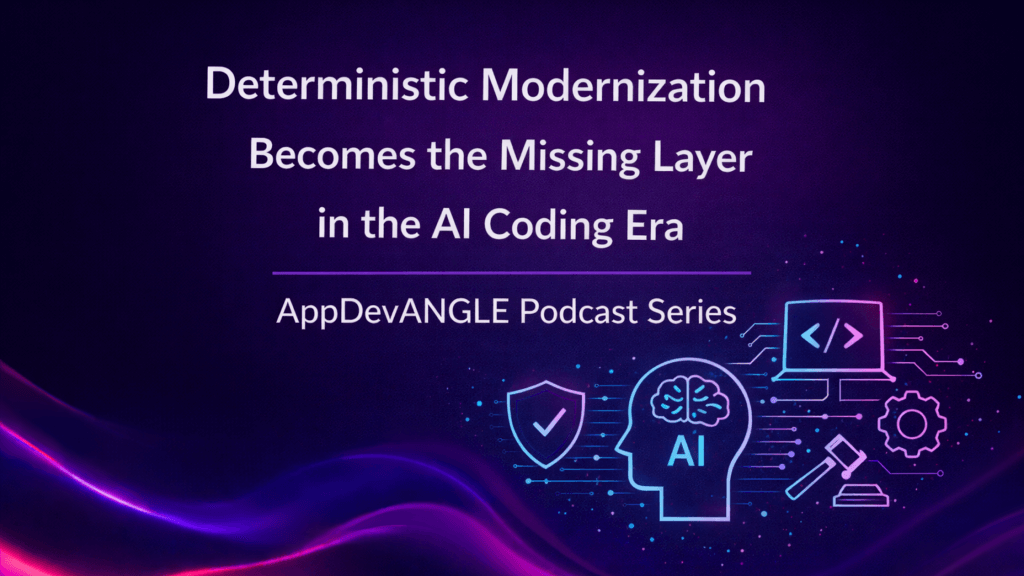
Why deterministic, cross-repo modernization is critical as AI coding accelerates enterprise software complexity.
Special Breaking Analysis | VAST Forward and an OS for the “Thinking Machine”

In 1986, this author met Danny Hillis, a recent graduate from MIT who was building one of the world’s fastest computers. He was wearing a bright green T-shirt with all these cubes, connected in a network. When asked about the design of the shirt, Hillis said it was meant to represent a massively parallel architecture […]
Building the Retail Network as a Platform for AI, Security, and Outcomes
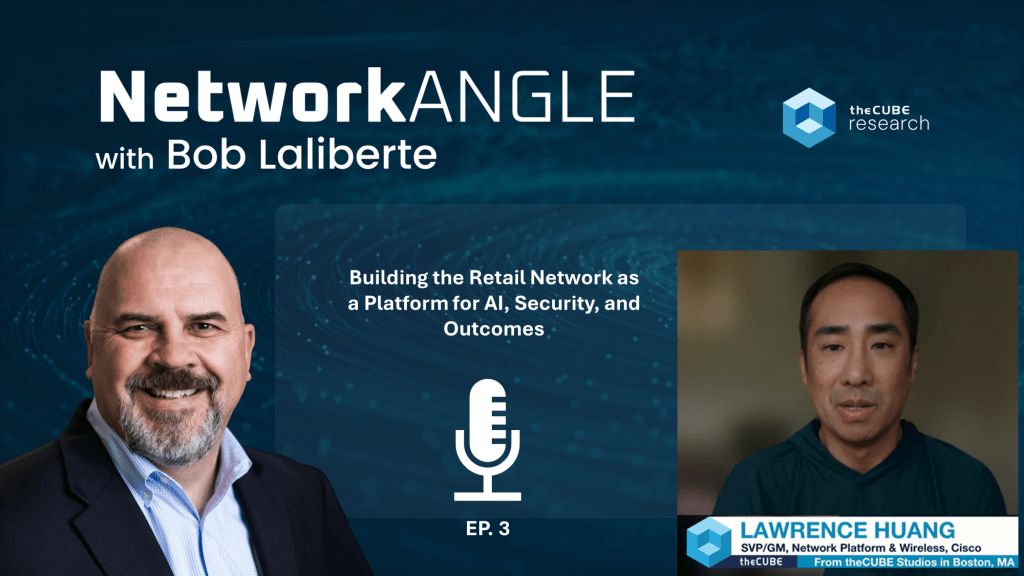
In a recent NetworkANGLE discussion, Lawrence Huang, SVP/GM of Network Platform and Wireless at Cisco, outlined how retail networking has evolved from basic connectivity to a platform-centric architecture designed to enable AI-driven use cases, operational resilience, and measurable business outcomes. Check out the full discussion below. The central theme is clear: The network is no […]
Beyond the Black Box: Building Transparent, Trustworthy Multi-Agent AI
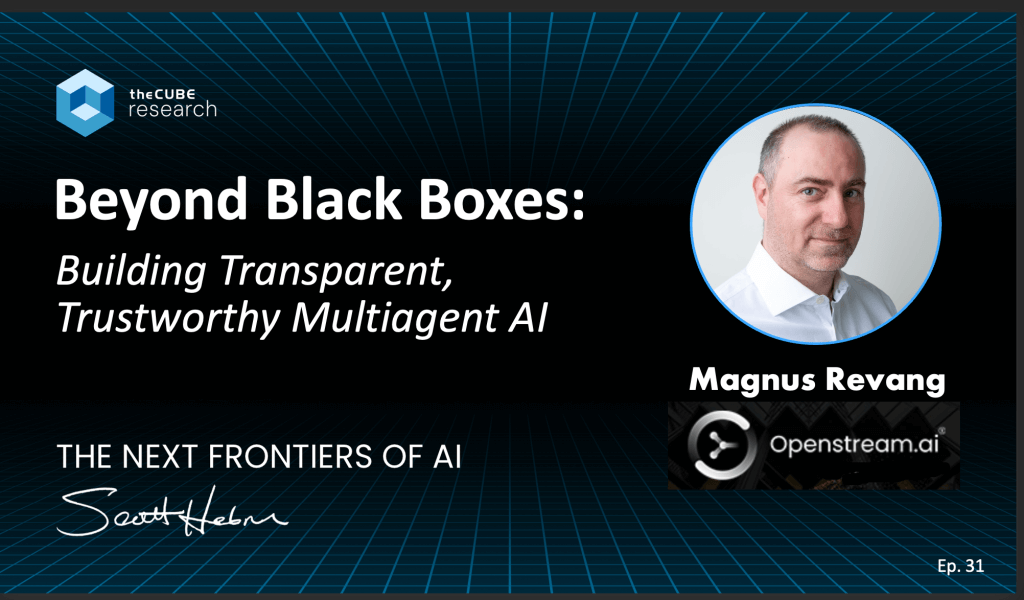
Explore how to build trustworthy multi-agent AI systems. AI’s next frontier will not be defined by bigger models, but by trust. As enterprises push agentic AI into higher-stakes workflows, the question is no longer what AI can generate—it is whether its decisions can be justified and defended. With only 49% of enterprises reporting high trust in AI outcomes and just 29% having formal trust frameworks in place, the gap is clear. In this episode, Scott Hebner and Openstream.ai’s Magnus Revang explore why transparent, auditable multiagent systems—not black-box models—are the foundation for enterprise-grade AI.
Agentic AI Governance Becomes the Enterprise Differentiator
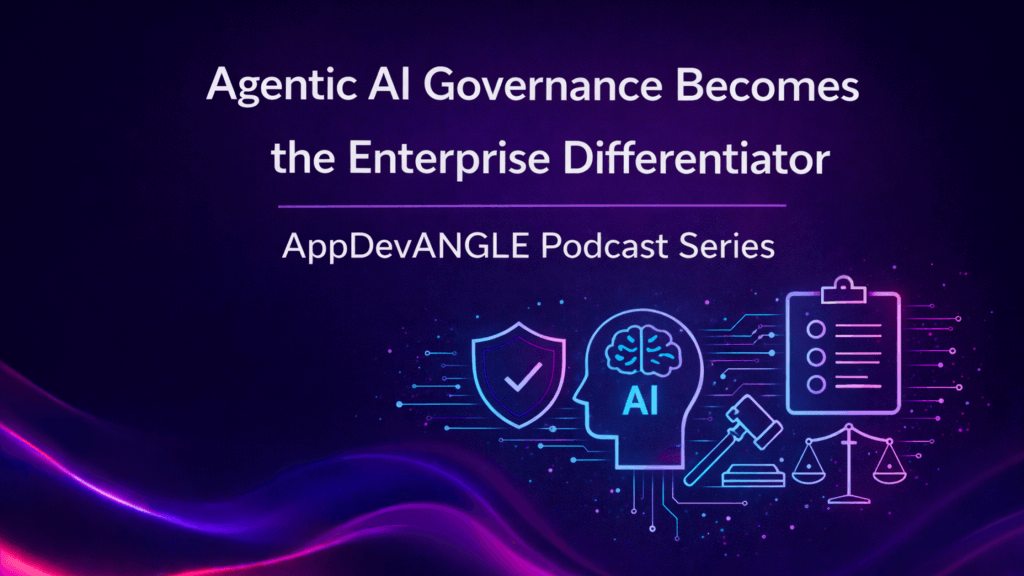
Why agentic AI governance, data quality, and API-first architecture determine enterprise success beyond experimentation.
Reskilling the Network Workforce for an AI-Driven Era: Part Two
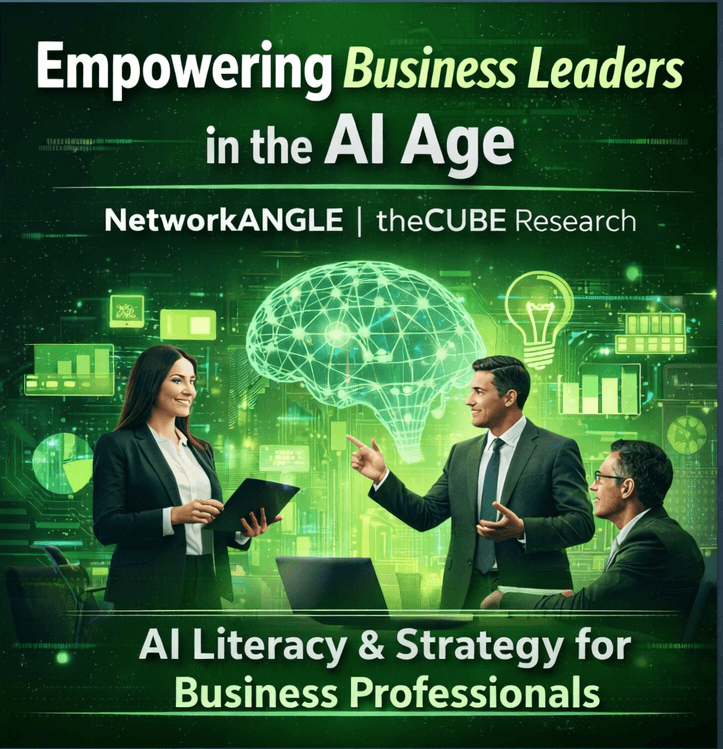
Aligning Business Leadership, Governance, and Workforce Transformation In Part One of this series, we explored how AI and generational shifts in the workforce are redefining the technical skill requirements for network engineers. But the impact of AI extends well beyond technical domains. In this second installment, the conversation with Par Merat and Ryan Rose turns […]
Reskilling the Network Workforce for an AI-Driven Era: Part One
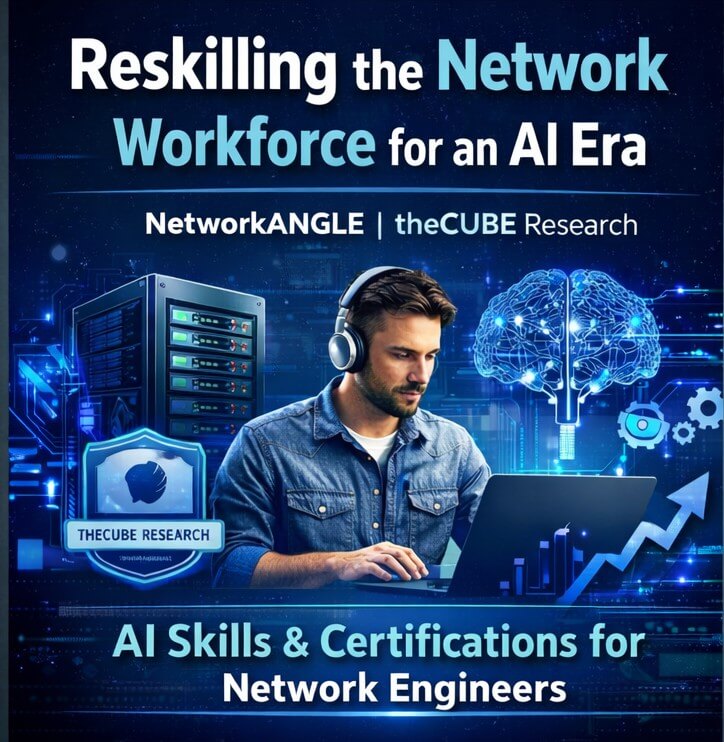
From Talent Pressure to Applied AI Skills Enterprise networking is entering a period of structural transition. Artificial intelligence is reshaping how networks are designed, operated, and secured at the very moment when a significant portion of the industry’s most experienced engineers is approaching retirement. This convergence creates a dual inflection point: a generational workforce shift […]
